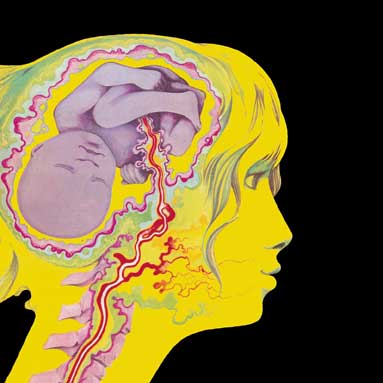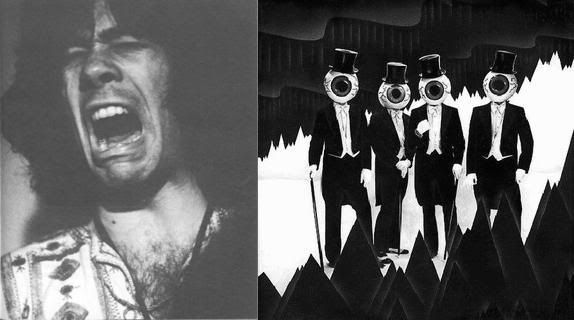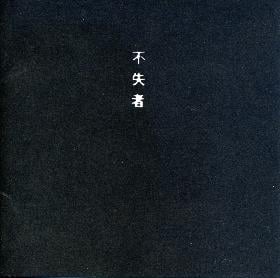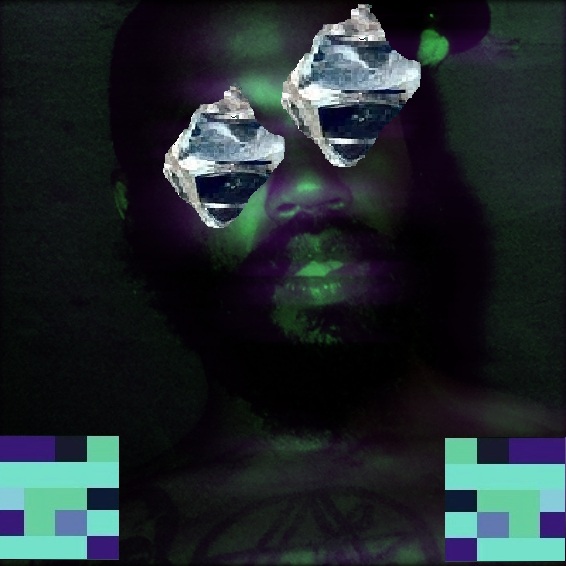Progarchives.com has always (since 2002) relied on banners ads to cover web hosting fees and all.
Please consider supporting us by giving monthly PayPal donations and help keep PA fast-loading and ad-free forever.
/PAlogo_v2.gif) |
|
Post Reply 
|
Page 12> |
| Author | ||
Shakespeare 
Forum Senior Member 
Joined: July 18 2006 Status: Offline Points: 7744 |
 Topic: The Mythology of Magma Topic: The Mythology of MagmaPosted: February 19 2008 at 22:23 |
|
|
Before I begin the actual content of this 'blog' (if you can call it that), I want to clearly stamp it with this following disclaimer:
I am not a Magma expert! Far from it. I do not fluently speak or understand Kobaïa (besides the odd word or phrase here and there), and even if I did, the amount Magma lyrics that can be found wouldn’t be enough to decipher the entire saga. The following blog is merely comprised of assumptions, based on the mood and atmosphere of the music, and what little fact I know to be true. This is a combination of a blog about Magma and a conversation invitation. If there is anyone who knows about the subject matter of Magma’s albums, then please lend us your intelligence. Let us pool resources in discovering the nature of this saga! And, lastly, if any of my assumptions are known to be false (say you know for certain that Ëmëhntëht-Rê was Russian and not Egyptian, then please kindly correct me.) It is almost guaranteed a huge portion of my assumptions (if not all of them) are false. So, without further ado… The Mythology of Magma by Shakespeare Chronologically, the earliest tale in the Kobaïan anthology is that of a man named Köhntarkösz. Köhntarkösz is an Earthling. We assume that this takes place sometime in the near (or maybe distant) future. One day, by whatever means, Köhntarkösz stumbled upon a long forgot, ancient tomb, belonging to a former Egyptian Emperor. This makes us think that Köhntarkösz was an archeologist, historian, researcher, or perhaps just lucky explorer. At any rate, the tomb belongs to Ëmëhntëht-Rê, who, in his life, sought nothing more than to discover the secrets of eternal life. Ëmëhntëht-Rê came close to accomplishing his goal, but before he completed his task, he was murdered. We’re unsure whether the murder was related to his work: whether an underground organization wanted the secrets of endless life to go unearthed, or if the Emperor’s reign was won by revolt, or if the Emperor just owed somebody a lot of money. Who knows, maybe Ëmëhntëht-Rê fell on the knife. While inside Ëmëhntëht-Rê’s tomb, Köhntarkösz is met by a startling and vivid vision of the bygone Emperor. It is in this fashion that Ëmëhntëht-Rê’s wealth of knowledge and wisdom, regarding life, death, man, God, time, existence, and eternal life is passed to the humble Köhntarkösz, who now, revealed the truth, sees how evil mankind is, and how imperfect Earth is...and sees a solution. However, I believe that in this moment a prophecy was also made: and it is articulated in the song Ork Alarm. The prophecy is essentially that if ever the secrets and wisdom of Ëmëhntëht-Rê would be harnessed to craft the ideal society; if ever human life was perfected; if indeed the evil of man was surpassed; the People of Ork would come and end it. The People of Ork would destroy all progress. Perhaps the prophecy isn’t an ‘if’ situation: maybe even Köhntarkösz seeing the vision was enough to spit the People or Ork out of their waiting. Maybe from that moment the People of Ork have been on their way (which would mean either they live a couple hundred galaxies over, or their ship runs on diesel.) What is for certain is that the People of Ork will play a large role in the distant future of mankind. The booklet of the CD issue of Köhntarkösz reads: “The people of ORK are marching upon us. The people are made of indescribable matter which to the machines is what the machines are to man. The alarm is sounded... ORK ALARM! The people of ZEUHL WORTZ are preparing for battle...” It sounds as though the People of Ork will, in the future, attack Kobaïa. Maybe they will attack Earth, and the Kobaïans will save Earth from them. I personally think it’s the former. What is important here is that a prophecy is made of the invasion of an advanced, alien race, organic yet different than man and his animal allies. I presume that the two bubbling fat fellows Ourgon and Gorgo on the cover of Attahk are People of Ork. That concludes what happens in Köhntarkösz, by my guess. Next in the Köhntarkösz series is K.A, or Köhntarkösz Anteria. What is most frustrating about this album is not only the fact that is the only currently released Magma album that I know virtually nothing about for certain, but also the fact that it is the only Magma album I have the complete lyrics for. God, I wish I spoke Kobaïan. But alas, I don’t, and therefore I’ll do my best guesswork at what comes next. (I can almost guarantee this section is false, but consider it.) Judging by the cover, (which strongly resembles a headstone), and the word “Anteria” which strongly resembled the English "Interred", and the French “En Terre” which is literally “In Earth”, i.e., buried, i.e., Wurdah Köhntarkösz. That’s right, I think Köhntarkösz dies in the sequel. This could happen by a number of means: maybe Mr. K was hunted down the by the same underground society that killed of Ëmëhntëht-Rê. Maybe Mr. K just grew old before his plans were executed, and passed his knowledge on to another, in a similar manner Ëmëhntëht-Rê did. (Or, maybe Köhntarkösz was a bit more traditional and just passed his knowledge vocally to his pupils). I think, personally, that what happened to Köhntarkösz was very much like what happened to the Kobaïans in the future when they tried to share their wisdom, but the results weren’t those Nebëhr Gudahtt received even further in the future. I think Köhntarkösz preached his wisdom: his visions of the fruitless future of mankind, of the evilness of their ways, of the impurity of our means, and our dire need to mend our ways. He was shunned and rejected by the general public, and Earth’s authorities tried to silence him. When they were unsuccessful, they had him killed. The booklet of K.A reads, “La jeunesse tourmentée de Köhntarkösz en quête de sa destinée. Cependant la providence guide déjà ses pas…” My French isn’t brilliant, but this essential translates to “The tormented youth of Köhntarkösz in quest of,” or “in searh of” or “in pursuit of his destiny. Nevertheless, providence already guides his feet…” This quote leads me to believe that Köhntarkösz is devoting his life to his plans for the perfect Earth, the ideal society, and to bringing his ideals to life. (Here is a large gap in my vision of the plot. The soon to be released – if it’s not delayed by the recent departure of three band members - “Ëmëhntëht-Rê” is placed here next in this trilogy. However, I have no idea at all what it could be about. Maybe I compressed too much into K.A. Maybe K.A is merely about Köhntarkösz sharing wisdom and recruiting followers, but it isn’t until Ëmëhntëht-Rê that he dies. Or, maybe (most likely) I missed the mark completely. Any insight would be great.) After his death, Köhntarkösz’ few followers secretly continued his goals, outside the watch of the government, and finally decided Ïtah suah Wurdah: Earth is dead (alright, I know a little Kobaïan.) They abandon it: it is beyond saving. The few enlightened ones must find a new world; begin anew if they are ever to bring about this ideal society. Now we begin the tale of their debut double-album, Kobaïa, whose plot is a very simple one. Disc One: these enlightened ones travel the universe on their advanced spacecraft, in search of the perfect planet. They find Kobaïa, and it all advances from there. The build their society from scratch, and in a matter of years, Kobaïa is a blooming utopia. Disc Two: Many years in the future, a totaled spacecraft is found hovering in orbit of the planet, unable to penetrate the atmosphere. The Kobaïans investigate, and find a crew of lost wayward Earthlings. The Earthlings see Kobaïa, and the startling progress they’ve made. The Earthlings plea for their aid, and tell that Earth is in even worse shape now. They beg the Kobaïans to return to Earth, tell of the great progress they’ve made politically, environmentally, technologically, spiritually, socially, and scientifically. They ask the Kobaïans to preach their ways to the deluded population of Earth. They oblige, and a small crew of knowledgeable Kobaïans returns to Earth. Thus concludes their debut, and begins 1001º Centigrades. Returning to the ancient home of their forefathers, the Kobaïans begin to preach their methods, and show Earth the depths they’d fallen to. Some humans were truly touched and believed in the Kobaïan message. But, the majority rejected these beliefs, and the authority of Earth arrested and imprisoned the Kobaïans. The remaining Kobaïans back home warn Earth’s government that if their imprisoned brethren were not released and sent back safely, they would be forced to unleash their ‘ultimate weapon’ on them. The ultimate weapon could be a building-bashing monster, a plague of flesh-eating insects, the Death Star (or a similar laser-beam emitting planet-destroyer), or pretty much anything else you can imagine. (Or, maybe the weapon is something much simpler - something we wouldn't normally consider a weapon.) At any rate, the imprisoned Kobaïans are released on a single term: no Kobaïan may ever step foot on Earth’s soil again. And with that, the Kobaïans leave Earth for eternity, and never again show their faces there. This concludes 1001º Centigrades. Moving now to another section of the saga: the most popular trilogy. Now, between the final departure of the Kobaïans and the redemption of all Earth, many years later, is a time referred to as Theusz Hamtaahk, which translates to Time of Hatred. Theusz Hamtaahk was never recorded in studio, but was performed frequently live. Together with its sequel, Wurdah Ïtah (Dead Earth, in case you weren’t paying attention earlier) these two albums depict the span of time where man commits his most dastardly crimes, performs his greatest evils, conducts behavior most devoid of moral, spiritual guidance, or of fear of their impending doom. Throughout this Theusz Hamtaahk on Earth, the few who heeded the Kobaïans’ warning way back when passed the knowledge they learned down through the generations. This knowledge being shared through the years was the sole banner of hope for all of Earth. And finally, Nebëhr Gudahtt came along, and was the first who had courage enough to act on his beliefs. This is the situation we find ourselves in at the beginning of .M.D.K., Magma’s most popular album, and arguably, the first real Zeuhl album. There is a reason Mëkanïk Destruktïw Kommandöh is so grandiose and epic. It is because of the powerful moral statement at its core. Nebëhr Gudahtt won more followers than Köhntarkösz, the original Kobaïans, and the Kobaïans who came to earth later, all combined. In fact, Nebëhr Gudahtt essentially won all of earth to the ways of Kobaïa, in the end. What occurred was this - and I’m just going to go ahead and directly quote Peter Thelen here, because he worded it so perfectly here. “His message to the people of Earth is that their only salvation from an ultimate and certain doom is through self purification and communication with the divine spirit of the supreme being, the Kreuhn Kohrman.” Gudahtt then began his march to spiritual purity, and to the redemption and salvation of all humanity. Earthlings initially reject his invitation and his insane claims, and they begin to march against him. But then they slowly begin to question their actions, and then their purpose and very existence, and one at a time converted to the ways of Kobaïa, until every single Earthling was marching together, towards spiritual enlightenment. Thus ends .M.D.K., and thus ends the Theusz Hamtaahk cycle. Following the Theusz Hamtaahk trilogy, very little is known. Attahk and Üdü Wüdü are the only remaining albums Magma released. (No, I am not overlooking any album.) I think that, in very short, these two albums narrate the Kobaïan war with the People of Ork. I am likely very far off here, and I’ve heard that certain pieces scattered across them (and certain live albums) are actually linked to the Ëmëhntëht-Rê tale, so I might even be wrong in terms of chronology. But one thing I’m rather certain of is that Ourgon and Gorgo are People of Ork, and they mean the Kobaïans harm. I have a handful of ideas what De Futura could be about, but it’s clear it has something to do with the passage of time, and similarly the future of war. (It was originally named De Futura Hiroshima, which leads us to believe it’s about WWIII and atomic war.) In the end, I’m not really sure about anything. These are merely my guesses, and if they are all concluded to be entirely false, then consider it fan-fiction. Experts: enlighten me on my faults. Edited by Shakespeare - February 26 2008 at 08:28 |
||
 |
||
laplace 
Prog Reviewer 

Joined: October 06 2005 Location: popupControl(); Status: Offline Points: 7606 |
 Posted: February 20 2008 at 12:19 Posted: February 20 2008 at 12:19 |
|
|
Good work, this is neato. In a good way.
It made me think in places, since I had taken "Anteria" to be synonymous with "Sequel" rather than being something meaningful to the continuity... in fact, I always prefer to read possible interpretations and analyses to the definitive version where it concerns fiction and art, so I'm glad this is full of educated speculation and non-definitive statements. Oh, and every time Vander decides to write about Messiahs or motherships he does so on the world's best album! =P |
||
 |
||
Sckxyss 
Forum Senior Member 

Joined: May 05 2007 Location: Canada Status: Offline Points: 1319 |
 Posted: February 21 2008 at 04:39 Posted: February 21 2008 at 04:39 |
|
|
Interesting stuff. I'm pretty sure the missing pieces and most of the stuff you weren't sure about are addressed on Merci, so I think you should give it a few more listens. |
||
 |
||
Dim 
Prog Reviewer 
Joined: April 17 2007 Location: Austin TX Status: Offline Points: 6890 |
 Posted: February 21 2008 at 20:29 Posted: February 21 2008 at 20:29 |
|
|
Wow Shakes, I must admit, I'm very impressed.
I only have MDK, and 1001 Centigrades, and the music dosent reflect the subject matter at all... Making me wish I knew Kobaian. Edited by schizoid_man77 - February 23 2008 at 00:41 |
||

|
||
 |
||
Shakespeare 
Forum Senior Member 
Joined: July 18 2006 Status: Offline Points: 7744 |
 Posted: February 21 2008 at 22:30 Posted: February 21 2008 at 22:30 |
|
|
I didn't know you were a Nirvana fan, Ian.  |
||
 |
||
rileydog22 
Forum Senior Member 
Joined: August 24 2005 Location: New Jersey Status: Offline Points: 8844 |
 Posted: February 23 2008 at 00:32 Posted: February 23 2008 at 00:32 |
|
|
ICE BURN!
|
||
  |
||
 |
||
Dim 
Prog Reviewer 
Joined: April 17 2007 Location: Austin TX Status: Offline Points: 6890 |
 Posted: February 23 2008 at 00:40 Posted: February 23 2008 at 00:40 |
|

All day long!
|
||

|
||
 |
||
MovingPictures07 
Prog Reviewer 

Joined: January 09 2008 Location: Beasty Heart Status: Offline Points: 32181 |
 Posted: February 23 2008 at 09:54 Posted: February 23 2008 at 09:54 |
|
|
Very interesting post and I think you did an extremely good job at deciphering everything in those Magma albums. Unfortunately, I'm not a Magma expert and I too want to really learn Kobaian, but since I've only been really into Magma for about half a year, I don't know as much as you do about it yet. Hopefully someone else can possibly clear up anything that you may have missed in there, but otherwise I think it was a really awesome read if your interpretations do in fact hold a candle to what Vander intended. On the note of Kobaian, I've only found one list of words in Kobaian and what they mean in English, but does anyone know where there might actually be a way to learn the language (or a translation of their actual lyrics)?
EDIT: (This is the site I'm talking about: http://myfile.hanafos.com/~jangminsu/magma/MAGMA-KOBAIAN-dictionary.html) Edited by MovingPictures07 - February 23 2008 at 09:55 |
||
 |
||
Ricochet 
Special Collaborator 

Honorary Collaborator Joined: February 27 2005 Location: Nauru Status: Offline Points: 46301 |
 Posted: February 23 2008 at 09:58 Posted: February 23 2008 at 09:58 |
|
 |
||

|
||
 |
||
oracus 
Forum Senior Member 
Joined: December 12 2005 Location: Greece Status: Offline Points: 497 |
 Posted: February 26 2008 at 01:49 Posted: February 26 2008 at 01:49 |
|
|
Wow! Great work Shakespeare! Interesting reading!
|
||

|
||
 |
||
Shakespeare 
Forum Senior Member 
Joined: July 18 2006 Status: Offline Points: 7744 |
 Posted: February 26 2008 at 08:26 Posted: February 26 2008 at 08:26 |
|
|
Thanks guys.

|
||
 |
||
Apsalar 
Forum Senior Member 

Joined: June 06 2006 Location: gansu Status: Offline Points: 2888 |
 Posted: February 26 2008 at 19:34 Posted: February 26 2008 at 19:34 |
|
|
Best read I've had on this site for a long time! I have never looked too deeply into the mythology side of Magma's lyrics (despite them being one of my favourite bands), so it was interesting to gain a better view on the storyline; I had a rough idea but nothing so in depth.
|
||
 |
||
Shakespeare 
Forum Senior Member 
Joined: July 18 2006 Status: Offline Points: 7744 |
 Posted: March 02 2008 at 16:20 Posted: March 02 2008 at 16:20 |
|
That's an incredible compliment, considering all the top-notch reviews there are here. Thanks.  |
||
 |
||
Grimfurg 
Forum Senior Member 

Joined: January 19 2008 Location: Cairo Status: Offline Points: 265 |
 Posted: April 30 2008 at 06:30 Posted: April 30 2008 at 06:30 |
|
|
That was really great, most of this is probably very true. But there's just one thing that's not really right though and that I would like to maybe point out, if I may.
It's K.A., actually K.A. is not a sequel of Kohntarkosz, but a prequel. It is the story of K's tormented childhood. It seems that in the first song, when you actually check out the lyrics, K (I'm just gonna go ahead and write K) is seemingly "chosen" at a young age, at the time his name is pronounced. Although he doesn't seem to fully awaken, and he needs to be awaken from this slumber (he's not fully aware of anything). There are words like Sündë and Sündi, which mean "to rest in peace" and Steuh Leuhp, Steuh means "towards". Would it mean that K must go towards something that rests in peace? That's probably what these calls are. K then starts to think about what's happening to him, (there is a calm part that portrays that part) and "Wi Wi ! Do Weh Ro Weh Ro ! Wi Wi ! Doï Doï Himtï !", that's probably where he found out that he was the chosen one. On to the second song, K hears the Hamtai, (the Salute), everything starts to get very clear, and the musical motif of Kohntarkosz (the album) is sung. After Mcgaw's great guitar solo, there seems to be a very optimistic ambiance to the music, like as if K knew what he was doing. Here, K is pretty much illuminated by all these revelations he hears. Now this is where it gets interesting: "Magma Iss Tendiwa" (The soul is Magma!), The soul/spirit is under earth. And what's under earth? Ementhet-Ré. When it starts to get serious, K stops dreaming, and it is time to head on to his journey. I have to go now, but I will carry on with part three of the song later. |
||
 |
||
mithrandir 
Forum Senior Member 

Joined: March 25 2006 Location: New Mexico Status: Offline Points: 933 |
 Posted: May 03 2008 at 03:23 Posted: May 03 2008 at 03:23 |
|
|
wow, that was in incredible read! Im a huge Magma fan, but I never tried to figure out the mythology in that amount of detail, thanks a ton for taking the time and giving us a well thought out interpretation

|
||
 |
||
Sean Trane 
Special Collaborator 
Prog Folk Joined: April 29 2004 Location: Heart of Europe Status: Offline Points: 20251 |
 Posted: May 03 2008 at 09:45 Posted: May 03 2008 at 09:45 |
|
|
excellent article, if I may.....
|
||
|
let's just stay above the moral melee
prefer the sink to the gutter keep our sand-castle virtues content to be a doer as well as a thinker, prefer lifting our pen rather than un-sheath our sword |
||
 |
||
Shakespeare 
Forum Senior Member 
Joined: July 18 2006 Status: Offline Points: 7744 |
 Posted: May 03 2008 at 10:41 Posted: May 03 2008 at 10:41 |
|
d'oh!
Köhntarkösz must go towards something that rests in peace? Sounds like the tomb of Ëmëhntëht-Rê to me! Thanks for the input! This gives me some new insight, and explains a lot of things I didn't understand.  |
||
 |
||
mithrandir 
Forum Senior Member 

Joined: March 25 2006 Location: New Mexico Status: Offline Points: 933 |
 Posted: May 03 2008 at 13:03 Posted: May 03 2008 at 13:03 |
|
|
speaking of Ëmëhntëht-Rê...does anyone have any new information about the recording of this album? I heard it's supposed to come out in 08, I check 7th Records and their myspace every so often in hopes for some kind of update but haven't seen anything new in a while, god I hope this comes to fruitation...Magma having a double set of trilogies under their belt would solidify their status of greatest band ever!
|
||
 |
||
Shakespeare 
Forum Senior Member 
Joined: July 18 2006 Status: Offline Points: 7744 |
 Posted: May 03 2008 at 16:08 Posted: May 03 2008 at 16:08 |
|
|
The Paganotti twins left the band recently, and there's been speculation whether that will put back the release date at all. But I personally really doubt it. I have faith it'll be released this year.
|
||
 |
||
Grimfurg 
Forum Senior Member 

Joined: January 19 2008 Location: Cairo Status: Offline Points: 265 |
 Posted: May 04 2008 at 10:38 Posted: May 04 2008 at 10:38 |
|
|
This is the band Antoine Paganotti's in now, they added me a few weeks ago, haven't listened to them much though.
http://www.myspace.com/elullnoomi I don't think it's really Zeuhl, but check it out! :) Ok, now onto part 3. This part is the most bad ass of all, the first 9 minutes is actually Om Zanka (heard on "Inedits" and the BBC 74 live version of Kohntarkosz. When I think of this part, I think of K walking through the desert, hearing the calls from the tomb. The vocals encourage our friend K to walk through the desert without turning back. At the ninth minute, Om Zanka stops, and here is a part where I'm not really sure of. Kohntarkosz arrives in an unknown Egyptian village next to the tomb (maybe they're Kobaian), there are a lot of vocals here, and the word "Bradiaah" which means "To Talk". K is fascinated by this sight, he talks with the people of village, telling them why he is here and what he's looking for. Now on to the part from a song called Gamma Anteria (heard in "Inedits" as well). The villagers doubt that he is the chosen one, (at the tenth minute, it's as if there was a conflict between Paganotti's vocals and the choirs). A woman walks towards K and tells him that he shall not pass if he doesn't prove that he is the chosen one. The change of riff at the twelfth minute shows K, talking with Ementhet-Ré's voice, the people of the village are starstruck, they want to hear his voice again (as they answer). When Vander sings, it seems that he is possessing K's spirit. The village starts to believe that he is really the chosen one. Allëhlüïa! Allëhlüïa! The people bring K towards the tomb, the atmosphere starts to dim a bit, but he enters the tomb, not knowing what he's awaiting. When K enters a completly dark area (he opens his flash light) and hears "Hoï Hamtaï Sïm Rïm Hamtaï". Which means "Sois Le Bienvenue" in french, wich could roughly be translated by, "Welcome...". I could make this up with the help of this guy: http://tubulamarok.free.fr/magma/magma-trilogie-kohntarkosz-1.htm Enjoy Edited by Grimfurg - May 04 2008 at 10:49 |
||
 |
||
Post Reply 
|
Page 12> |
| Forum Jump | Forum Permissions  You cannot post new topics in this forum You cannot reply to topics in this forum You cannot delete your posts in this forum You cannot edit your posts in this forum You cannot create polls in this forum You cannot vote in polls in this forum |